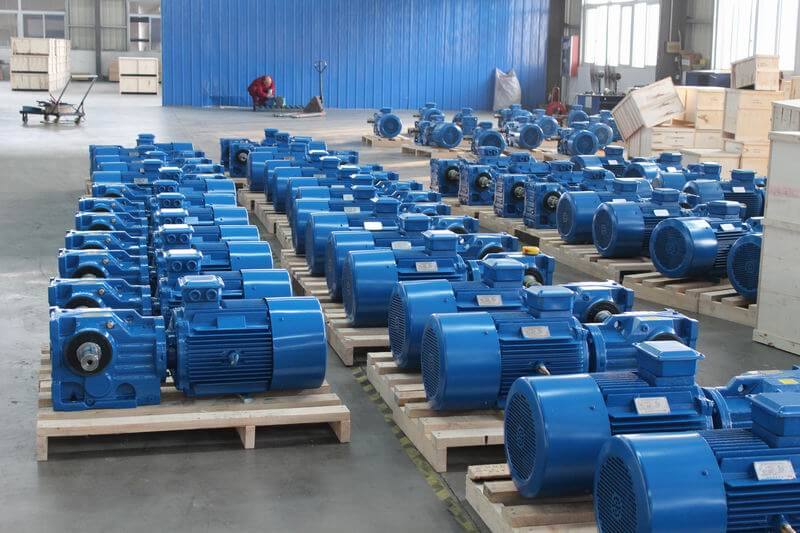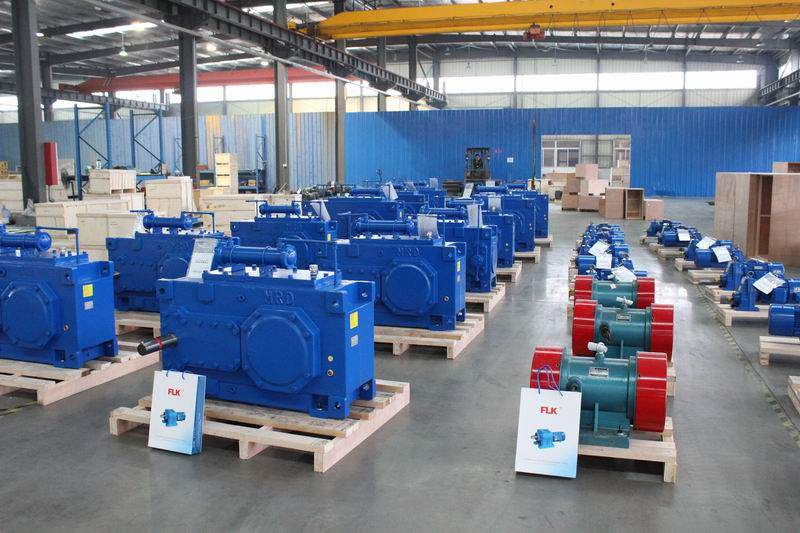How to select a gearbox?
Selecting a gearbox goes beyond just determining the required speed and torque output. Duty cycle, radial and axial loads, inertia, and environment all play a factor. Not to mention the gearbox type (inline, right angle), precision level, and service factor.
The process of selecting a gearbox consists of a few steps that define how the unit will perform and how the unit will be mounted.
The most commonly required information includes:
- Speed and horsepower of the input
- Desired output speed or desired output torque (will determine ratio)
- Characteristics of use; hours per day, nature of shock or vibration in the system
- Degree of overhung load
- Unit configuration, shaft input or hollow bore input, shaft output or hollow bore output
- Unit orientation, for instance, for a right-angle worm gear, worm over or worm under, shafts horizontal or vertical
- Special materials; corrosion resistant paints, stainless steel housing and shafts
Service Factor
The starting point for most gearbox manufacturers is to define a service factor. This tool is used to adjust for such concerns as type of input, hours of use per day and any shock or vibration that might be present in the application. An application with an irregular shock such as a grinding application will require a higher service factor than one that is uniformly loaded. Similarly, a unit that is used intermittently will see a lower factor than one that is used 24 hours per day.
Class of Service
Once this factor is determined, it will define a class of service. A unit driven by a plain AC motor driving an evenly loaded, constant speed conveyor 20 hours per day would commonly have a service class 2.
Gearbox manufacturers provide charts based upon class of service. To use this chart, you need to know input horsepower, class of service and desired ratio. Our example involves a 2 hp motor and the need for a 15:1 ratio. To use the chart find the point where 2 hp and 15:1 ratio intersect. In this case, a size 726 unit is selected.
According to the manufacturer’s product number system, the unit size 726 defines a unit that has a 2.62 center distance. To confirm the selection and confirm a specific level of torque or speed, manufacturers will provide charts that show those values.
This chart provides values for C-face motor input (flanged) or direct-coupled motors (non-flanged). It lets you verify that with 15:1 reduction the 726 size flanged gearbox will provide a 116.7 RPM output and when used with a 2 hp motor will provide up to 994 in.-lbs of torque.
Overhung Load
Once a unit size is selected, the gearbox manufacturer’s catalog or website will provide a value for the maximum overhung load that is permissible for that specific size unit. If the load in an application is higher than the value allowed, the gearbox may need to be upsized to account for the overhung loading.
Mounting
At this point, the unit size and capability has been defined and so the next step is to determine the mounting characteristics for the unit. While there are some common mounting configurations, gearbox manufacturers offer a wide range of options for each unit size. A flanged input with hollow bore for a C-frame motor combined with an output shaft projecting to the left may be the most common mounting, but there are many other choices. Such options as mounting feet for either above or below the body of the gearbox, hollow outputs, and input and output configuration are all possible. All gearbox manufacturers list their mounting options as well as dimensional information in catalogs and websites.
Lubricant, Seals and Motors
Once unit size and configuration is complete, there are still a few steps to be addressed. Most manufacturers provide an option to ship the gearbox filled with lubrication (for most, the default is to ship units empty and let customers fill them on site.) For applications where there is a vertical shaft down, some manufacturers will recommend a second set of seals. Finally, because many gearboxes are eventually mounted to a c-frame motor, many manufacturers will also offer a service to integrate a motor onto the gearbox and ship the assembly as a single unit.
If you met problems with selection of gearbox, please feel free to contact us for help. Our professional technical team will help you to solve all your problems. Our Email: sales@flkdrive.com or you can call us +86 15856460059.





